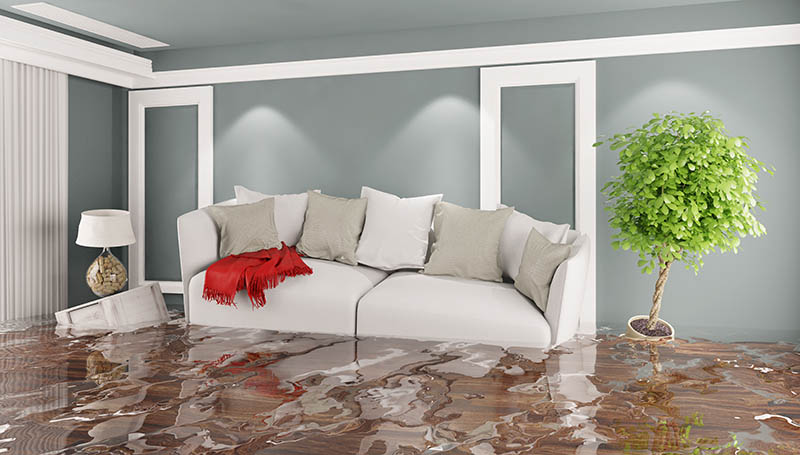Exploring Why Leak Issues Can Be So Common Within Your Home
Exploring Why Leak Issues Can Be So Common Within Your Home
Blog Article
What are your opinions concerning How Fast Water Damage Can Ruin Your Home?

Leakages not just create waste of water yet can likewise trigger unnecessary damage to your residence and also advertise undesirable natural growth. Water leaks could go undetected given that many of the pipework in our house is concealed. By looking and comprehending for everyday circumstances that cause leakages, you can secure your house from future leaks and unnecessary damage. Today, we will certainly consider 6 leak creates that might be triggering your pipes to trickle.
Instant temperature changes.
Severe temperature level changes in our pipelines can cause them to broaden as well as get all of a sudden. This growth as well as contraction may cause splits in the pipes, especially if the temperature are below cold.
Corroded water systems
This could be the cause of discoloration or warping on your water pipelines. If our plumbing system is old, take into consideration replacing the pipes since they are at a greater danger of corrosion than the more recent designs.
Defective Pipeline Joints
Pipeline joints can degrade over time, resulting in water leakages. If you have noisy pipes that make ticking or banging noises, especially when the hot water is transformed on, your pipeline joints are most likely under a great deal of pressure.
Encroaching origins
A lot of water leaks begin outside the residence rather than inside it. You may see damp spots or sinkholes in your backyard, and that may indicate that tree origins are attacking water lines causing water to seep out.
Poor Water Connectors
At times, a leakage can be created by loose hoses and also pipes that provide your devices. In case of a water connections leakage, you may notice water running straight from the supply line or pools around your home appliances.
Obstructed Drains
Blocked drains pipes might be annoying as well as inconveniencing, yet they can sometimes end up creating an overflow leading to rupture pipes. Maintain getting rid of any materials that may decrease your drains that might block them to stay clear of such aggravations.
All the above are reasons for leakages but not all water leaks result from plumbing leaks; some leakages might come from roof leakages. All leakages must be fixed promptly to prevent water damage.
Leaks not just trigger waste of water however can also create unneeded damage to your residence and also promote unwanted natural growth. By recognizing as well as looking for daily situations that create leaks, you can safeguard your house from future leaks and unneeded damage. Today, we will look at 6 leak creates that may be triggering your pipes to drip.
At times, a leakage can be caused by loose tubes and pipelines that supply your home appliances. In instance of a water connections leak, you might see water running directly from the supply line or puddles around your devices.
How To Check For Water Leak In Your Home
How To Check for Leaks
The average household's leaks can account for nearly 10,000 gallons of water wasted every year and ten percent of homes have leaks that waste 90 gallons or more per day. Common types of leaks found in the home are worn toilet flappers, dripping faucets, and other leaking valves. These types of leaks are often easy to fix, requiring only a few tools and hardware that can pay for themselves in water savings. Fixing easily corrected household water leaks can save homeowners about 10 percent on their water bills.
To check for leaks in your home, you first need to determine whether you're wasting water and then identify the source of the leak. Here are some tips for finding leaks:
Take a look at your water usage during a colder month, such as January or February. If a family of four exceeds 12,000 gallons per month, there are serious leaks.
Check your water meter before and after a two-hour period when no water is being used. If the meter changes at all, you probably have a leak.
Identify toilet leaks by placing a drop of food coloring in the toilet tank. If any color shows up in the bowl after 10 minutes, you have a leak. (Be sure to flush immediately after the experiment to avoid staining the tank.)
Examine faucet gaskets and pipe fittings for any water on the outside of the pipe to check for surface leaks.
Undetected water leaks can happen without the home or business owner even realizing. If you suspect a water leak, but not able to find the source. It is time to contact a professional water leak detection service, The Leak Doctor.
How To Find a Water Leak In Your Home
https://www.leakdoctor.com/blog/How-To-Check-For-Water-Leak-In-Your-Home_AE197.html

As a fervent reader about Top Causes of Home Water Leaks, I assumed sharing that piece of writing was worth the trouble. Loved our piece of writing? Please share it. Help other people discover it. We treasure reading our article about How to detect water leaks in your home.
We're here for you, dial! Report this page